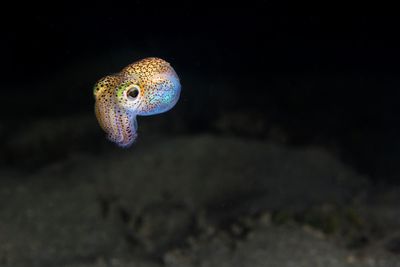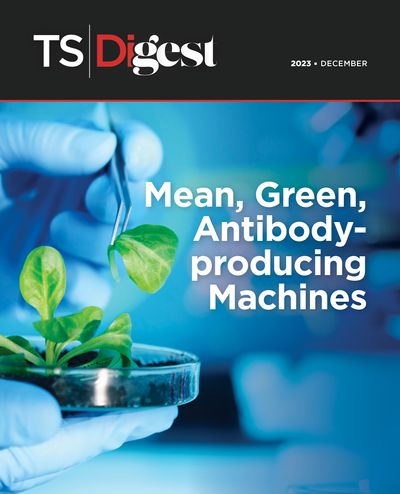To Boldly Go Where No Squid Has Gone Before
Jamie Foster’s space-faring squid and its symbiotic bacteria illuminate host-microbe communication.
Jamie Foster, an astrobiologist at the University of Florida, always wanted to be an astronaut. While she hasn’t yet been to space, she has sent the tiny bobtail squid in her stead. Foster explores how stresses such as microgravity alter the biomolecular communication between the squid and its symbiotic bacteria, Vibrio fischeri. Ultimately, this could help scientists gain insights about the impact of space flights on the partnership between astronauts and their microbiomes.

Why is the bobtail squid a good model for studying host-microbe communication?
The squid has a special symbiotic organ called the light organ, which is colonized by one species of bacteria. These bacteria give the squid the power to glow in the dark, which the animal uses as an antipredator defense mechanism. This simple system makes it easier for us to identify and manipulate the molecular signals from the bacteria and determine the effects they have on the host. This is very different from the human body, where there are thousands of different microbial taxa interacting with one another and with our cells.
What have you learned so far?
We measured how the squid responded to microgravity with or without their microbes. In microgravity, the squid initially turned on many different stress response genes. While they stayed stressed in the first few hours after we gave them the bacteria, after about ten hours, they turned off the stress response. When we didn’t give the animal the right microbe, it stayed stressed. So, having the right microbes seems essential for dealing with the stress of microgravity for the squid.
Even with the right microbes though, the immune system didn’t respond exactly how it should. We have seen inhibitors of the innate immune response get upregulated within a few hours of exposure to microgravity, which may delay the proper activation of the immune system. If spaceflight dysregulates astronauts’ immune systems as well, it will be really important to keep track of what microbes we bring with us to space.
This interview has been condensed and edited for clarity.


